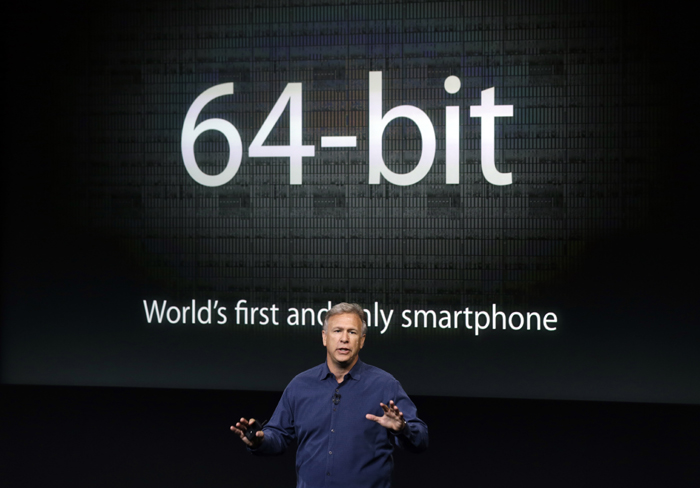Their main competitor, the South Korean company Samsung is also considering the introduction of 64-bit processors in their devices. Samsung's head of mobile JK Shin confirmed to the South Korean newspaper Korea Times that the company intends to launch smart phones with 64-bit processor in the future.
Samsung will most likely use a redesigned Exynos processor based on ARMv8 64-bit architecture, which was first introduced two years ago. What they are trying to do here is obviously enabling the option to put more than 4 GB of RAM inside of their smartphones, which will lead to even bigger power consumption. The whole upgrade is pretty much pointless since smartphones are not able to exploit all those resources, the chip will have to be bigger, and apps will have support 64-bit OS from now on. Maybe the time has come to rethink what the purpose of mobile phone really is...
[Ed – The question that needs to be answered is; is 64-bit true 64-bit or is it just 64-bit memory extensions. If it is the latter then it is fairly useless in the mobile world. In the PC world (and only the Windows world) 64-bit enables access to memory sizes larger than 4GB. In the Linux, Unix and BSD world these restrictions are not there. If the core kernel is true 64-bit then you have a huge potential for applications issues unless you have an emulation layer to handle 32-bit applications (legacy). Most likely the OS for Android, iOS, Windows Phone and Blackberry will be 64-bit for Core OS functions, but the rest of the OS will be 32-bit. In fact... this is exactly what Apple did before when they claimed a 64-bit OS.]
Tell us what you think in our Forum




